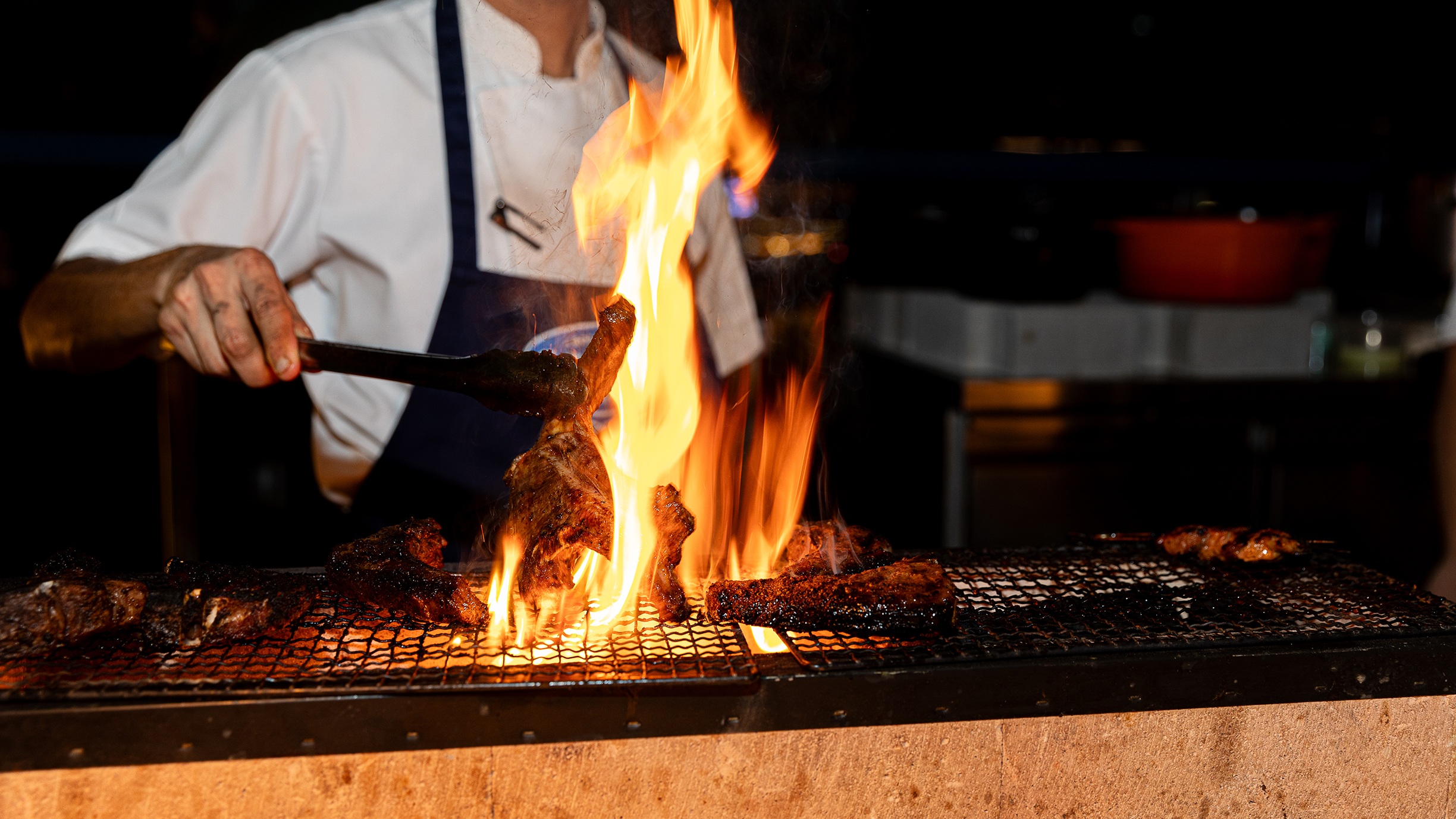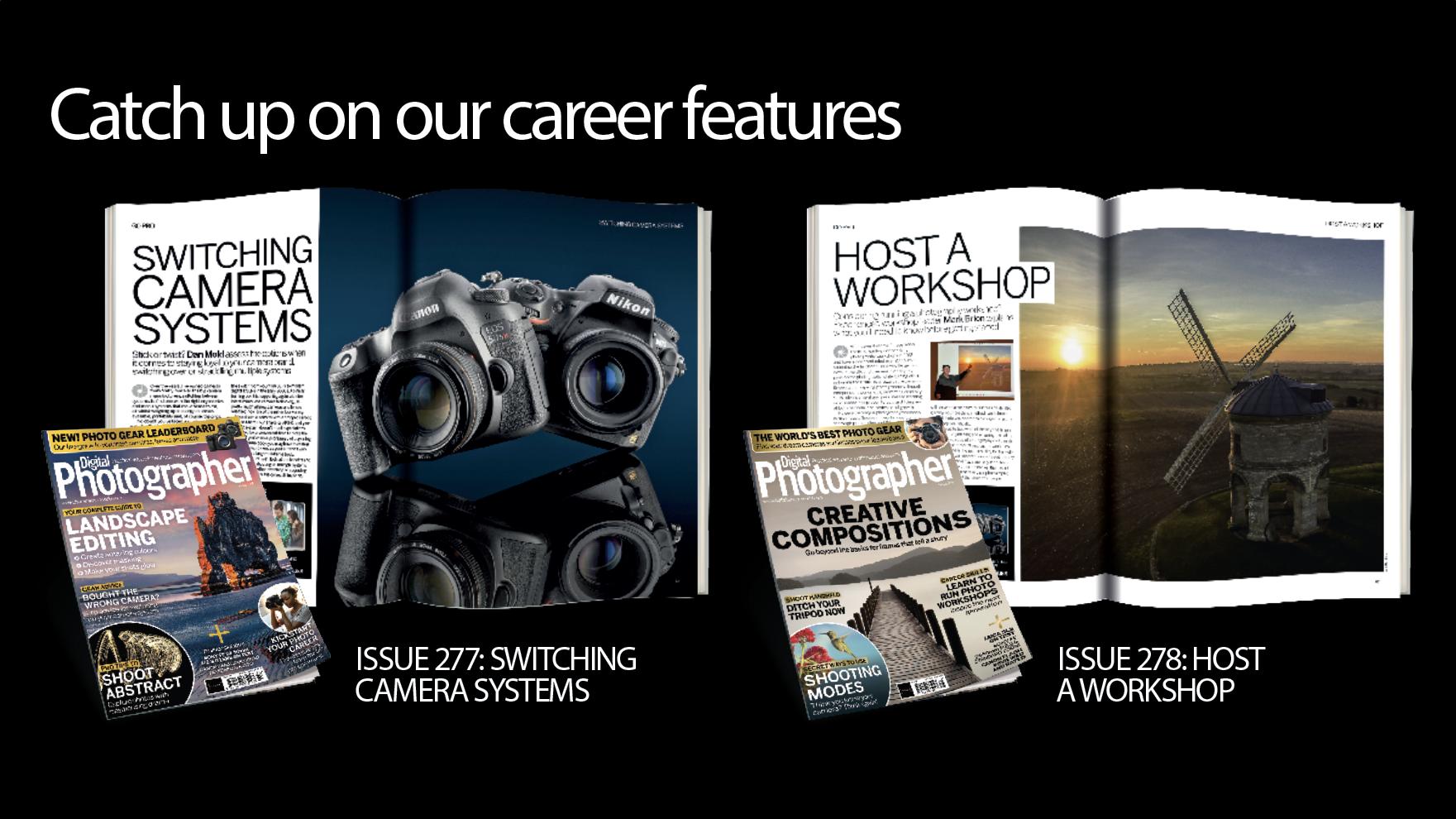
Marketing yourself as a photographer can be a pain point for many of us. All the usual questions pop up – how do you do marketing? How do you book your next client? How do you make yourself stand out from the crowd?
Although understanding these questions and finding the answers can seem both difficult and daunting, finding the right information that hasn't been buried in the depths of a treasure trove of experience can be equally hard.
I always say that having a photography business is more about business than it is about photography. Having the talent and skill is crucial for success, of course, but you need to think with a business head to get your work in front of the right clients – and must think outside the box to grow your career to where you want it to be.
I could sit you down and discuss all the cringe-worthy ways I have tried to get new clients and all the challenges I have had, but that would be a whole different article. Instead, I have listed the five key points that I wish I had been told earlier in my career. Had I known these, it would have saved me a lot of trouble, sleepless nights, and second-guessing myself.

Portfolio
Your portfolio is, hands down, the most important part of your business. This is what you want to give as a first impression, what you want the client to know and how you want to be portrayed.
Creating a photography portfolio in the shape of a website is a crucial way to reel in potential clients and immerse them in your work. Obviously, it is key to use your best photos and list the services you offer. If you have reviews it is vital to include them, but don't worry if you are just starting out as it won’t detract from getting booked.
However, an often-overlooked aspect is using your SEO (search engine optimization) to attract organic leads. Work on identifying keywords within your photography niche and include them on your website. This will help your ideal client find you simply by searching what they are looking for on Google.
Nailing all these things will do one thing – encourage the client to book you.
The truth about networking
"Network to secure paid jobs" is the one piece of advice everyone seems to give. But why? I am still trying to figure that one out. When I first started my photography business, I spent a lot of time networking, trying to crack the secret code to landing clients simply by sparking up a relationship with someone. However, I stopped as quickly as I started.
I agree that networking can be beneficial in some situations, but times have changed. Focus on your craft and do your own research on clients and businesses you want to work with. This approach will be far more beneficial than trying to cultivate relationships that, most likely, won’t land you a paid job – in fact, networking encourages favors over paid work. Personally I can’t remember the last time I went to a networking event, but my business has never suffered because of it.
Referrals are another story, though. These are based not solely on your photographs themselves but on how well you have worked with a client – so learn to harbor those types of relationships instead.

Sales and marketing 101
Although it may be daunting and uncomfortable at first, putting yourself out there as a photographer is crucial to getting noticed. By this, I mean taking a chance and reaching out to clients, sending over your portfolio and proposing how you can make a change to their life or business through beautiful photography.
This is where the magic happens! Such a self-confident approach will set you ahead of your competition and encourage clients to work with you, based on your eagerness to work with them. Essentially, it shows passion and determination. Over time, this will become your biggest asset.

Starting afresh in a new location
Of course, being a freelance photographer comes with its perks: you can work from anywhere, travel for a living and still make money. Although moving to a new location can seem daunting in terms of feeling as if you're "starting again", look at it as a way to begin anew.
Moving to Dubai, I researched differences in the market and had a rethink on how I presented my photography. In the end, what really worked for me was simply having a physical copy of my tailored portfolio professionally printed in an A4 booklet – and handing it out to the restaurants and hotels in the Emirates that I wanted to work with.
Although this "cold call" approach may seem hard and somewhat embarrassing, it was a successful one and that is how I booked my first shoots out here.
Another way that I started getting my name known was by refining my pitch and appeal on Upwork, a website for freelancers. That meant that I could hit the ground running. If, like me, you can work with clients remotely, focus your attention on this, as it will allow for multiple sources of income without having to rely on commissions from where you currently live. It certainly makes it easier to travel around.

Pricing yourself
I would easily say this is one of the biggest frustrations in the photography industry. Pricing varies massively depending on genre, experience and the nature of the project itself. Although I can’t necessarily tell you what to charge, I can't stress enough that you need to take everything into account when pricing yourself.
I am a food photographer and, apart from the all-important factors of time and creativity, I include the pricing of backdrops, props, the ingredients needed, cleaning and packing up my studio, dishes that need to be washed – the list goes on.
Remember, you’re charging for the entire photography process. If you’re struggling to price yourself or know that it's about time to raise your prices, I recommend you make a note of the entire process from the initial idea to the concept to delivery, then include everything involved in a cost breakdown when proposing a price to the client.
Honestly, this will educate them on all the behind-the-scenes elements of their shoot. If this process is followed properly, clients won’t second-guess you – trust me.
Catch up on our career features

Digital Photographer magazine has regular features on professional photography and navigating the business side. Get your back issues here.
Take a look at the best cameras for food photography, along with the best lenses for food photography, to make your subjects look as delicious as possible!







